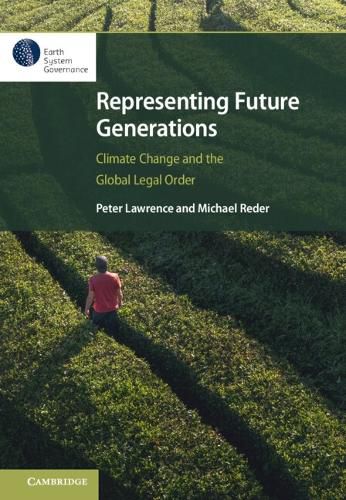Readings Newsletter
Become a Readings Member to make your shopping experience even easier.
Sign in or sign up for free!
You’re not far away from qualifying for FREE standard shipping within Australia
You’ve qualified for FREE standard shipping within Australia
The cart is loading…






The impact of climate change on young people and future generations has become a key issue globally, and current international law-making processes insufficiently represent the interests of these groups. While ideally the interests of future generations would be mainstreamed, the authors argue that proxy-style mechanisms for representing future generations should urgently be pursued as a parallel strategy. This book analyses existing institutions in the UN which indirectly represent vulnerable groups and uses a novel combination of legal and philosophical methods based in the tradition of John Dewey's pragmatism and International Legal Realism. Chapters include case studies of climate change cases brought before international courts, tribunals and the UN envoy to demonstrate how representation of future generations can be implemented to bring about institutional reforms. Written in accessible language, it will make a useful reference for researchers, graduate students and policymakers in international environmental law, global environmental governance and environmental philosophy.
$9.00 standard shipping within Australia
FREE standard shipping within Australia for orders over $100.00
Express & International shipping calculated at checkout
The impact of climate change on young people and future generations has become a key issue globally, and current international law-making processes insufficiently represent the interests of these groups. While ideally the interests of future generations would be mainstreamed, the authors argue that proxy-style mechanisms for representing future generations should urgently be pursued as a parallel strategy. This book analyses existing institutions in the UN which indirectly represent vulnerable groups and uses a novel combination of legal and philosophical methods based in the tradition of John Dewey's pragmatism and International Legal Realism. Chapters include case studies of climate change cases brought before international courts, tribunals and the UN envoy to demonstrate how representation of future generations can be implemented to bring about institutional reforms. Written in accessible language, it will make a useful reference for researchers, graduate students and policymakers in international environmental law, global environmental governance and environmental philosophy.